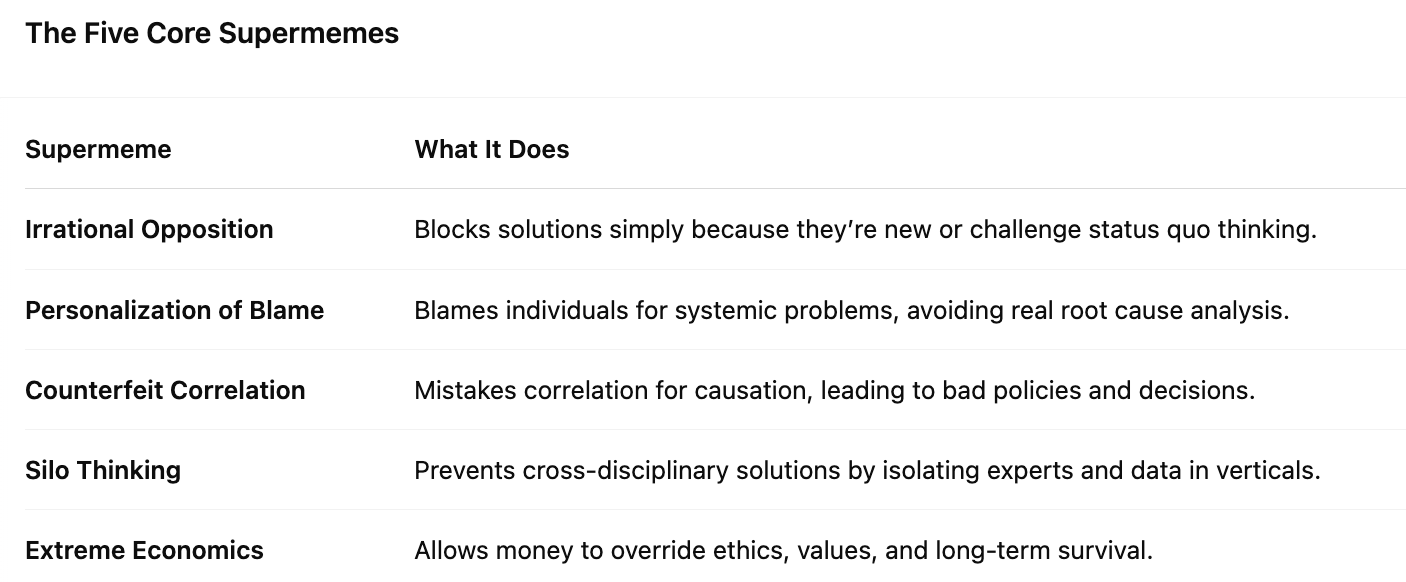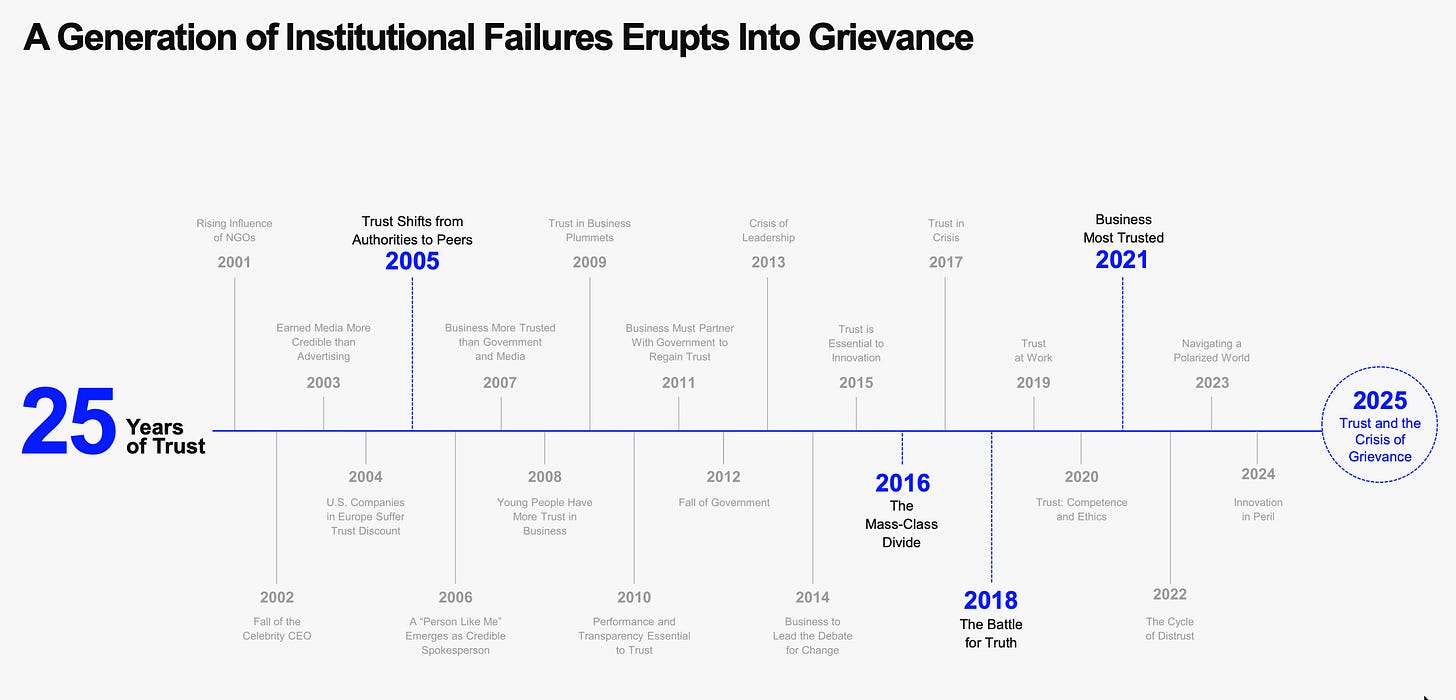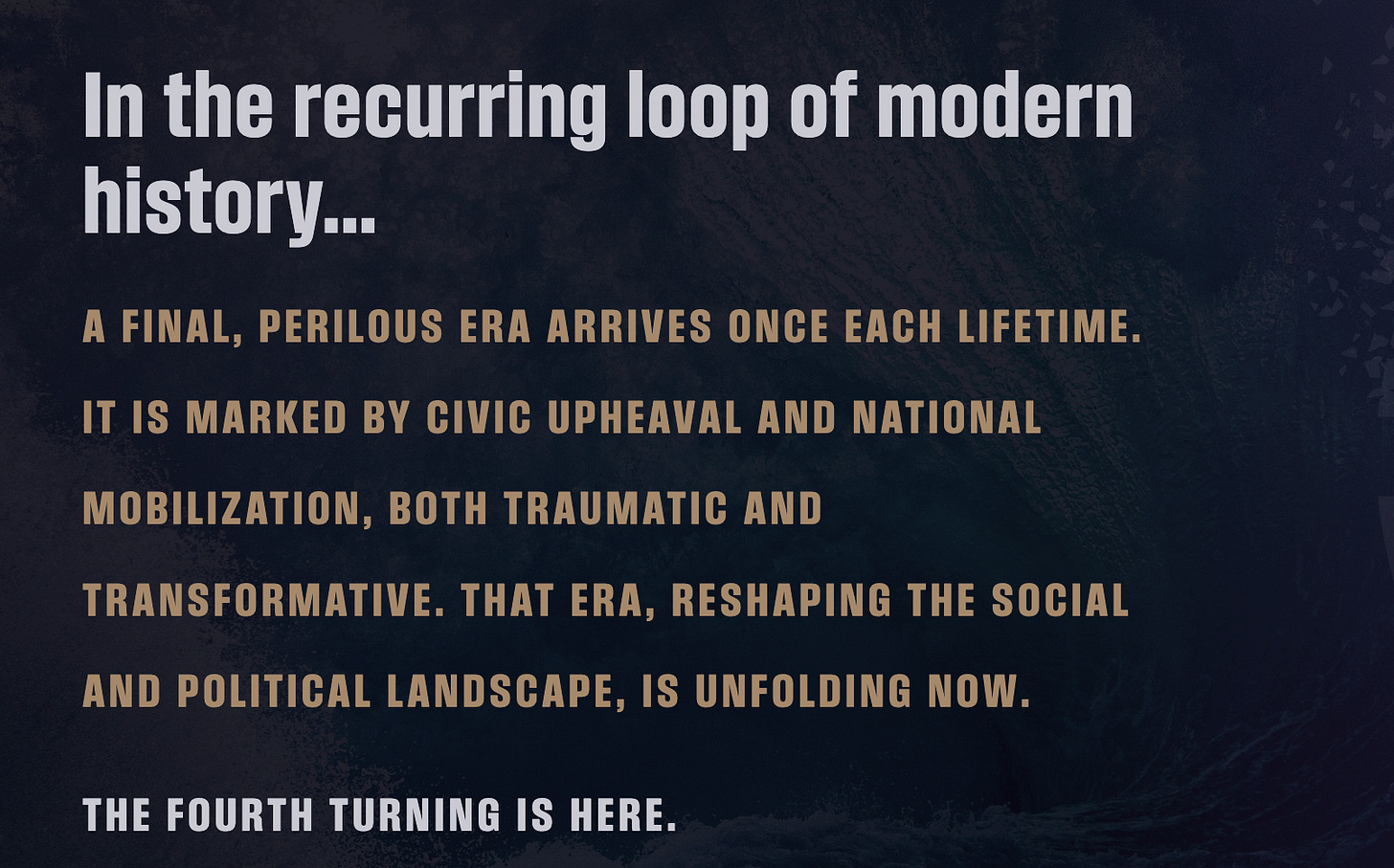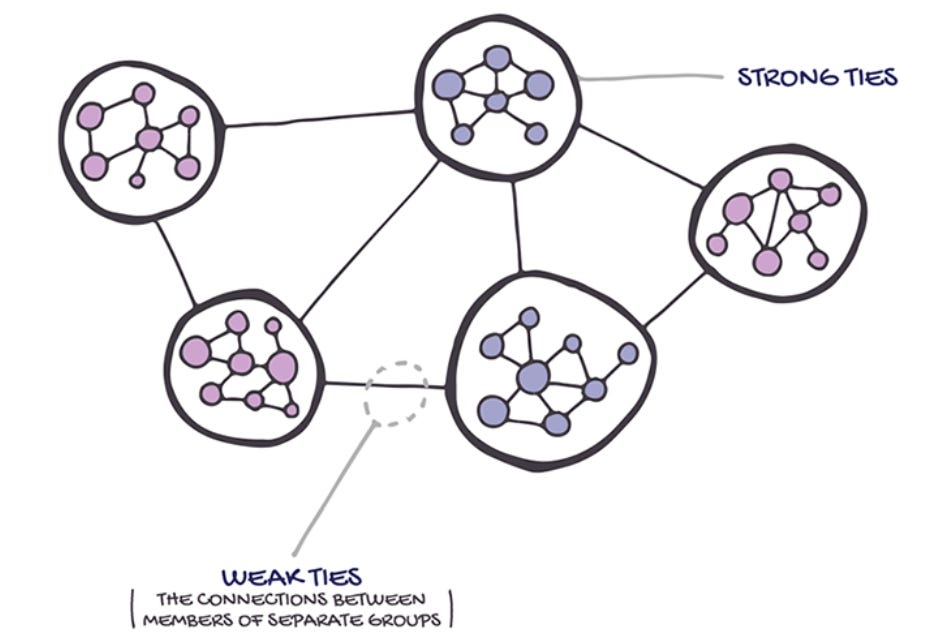Finding Peace of Mind and Prosperity in Troubling Times
When Nothing Seems to Make Sense, Here is My Wealth Matters Compass for Navigating Collapse and Renewal in Markets and Society.
Happy Wednesday. I woke up this morning just like you, having trouble deciding who—or what—to trust anymore.
The headlines change by the hour. Almost every data point feels politicized. Economic indicators contradict each other. Judicial outcomes no longer seem rooted in precedent. Global leaders appear to be playing a chaotic chess match with rules none of us were given. We’re overwhelmed with information, rhetoric, and opinions, but starved for clarity.
And yet, over the past 20 years, I’ve found a way to prepare and see clearly through the fog of these wintery times, despite having the same challenge day-to-day, managing the individual storms as they arise. My mental model doesn’t promise simple answers — but offers a powerful framework to make sense of where we are, how we got here, and most importantly, how we emerge on the other side not just intact, but thriving.
That clarity has come from the combined insights of four thought leaders and their respective works (two of which I have had the pleasure of spending considerable one-on-one time with, and two I hope to meet in the near future (hint hint-holla at your boy)! They are listed below in order of how they inform my framework.
Rebecca Costa’s The Watchman’s Rattle
The 2025 Edelman Trust Barometer
Neil Howe’s generational theory in The Fourth Turning
Balaji Srinivasan’s The Network State
Each offers a lens. Together, they form a compass (or at least they have for me, so I share my mental model with you for what it’s worth.
The Root Problem: Complexity Has Outpaced Our Ability to Solve It
Rebecca Costa, in The Watchman's Rattle, argues that history doesn’t repeat because we forget—it repeats because human societies hit a complexity ceiling. She defines complexity as having more wrong choices than right ones.
As challenges multiply and interdependencies grow, our cognitive capacity and institutional frameworks fail to keep up. The result? Societal gridlock and eventual collapse.
Costa introduces the concept of super memes—deeply embedded beliefs or behaviors that become dominant when societies feel overwhelmed. These memes aren’t quirky internet jokes; they’re dangerous mental shortcuts that paralyze progress.
As these super memes take root, they become society’s default setting. Complexity increases, trust decreases, and institutions erode. Sound familiar?
Costa warns that unless we consciously override these supermemes with better thinking, we fall into the same trap as previous civilizations that disappeared not from war or famine, but from decision-making paralysis. Source
Where Trust Breaks, Collapse Accelerates
Enter the 2025 Edelman Trust Barometer. It’s a real-time pulse on global trust, and the results are chilling.
61% of people globally now feel a deep sense of grievance.
Only 36% believe their children will be better off.
67% say the media serves ideology over the public interest.
63% fear racial or economic discrimination.
70% fear being actively misled by leaders.
While business is technically still the “most trusted” institution, that trust is highly fragile, especially among low-income groups and those with a strong grievance mindset.
In other words, our collective faith in the system is breaking down. Source
Why This Collapse Is Predictable—and Necessary
If Costa explains the what, Neil Howe helps us understand the why now.
In The Fourth Turning, Howe and his late co-author William Strauss argue that history moves in cycles (roughly 80 to 100 years in length) composed of four generational "turnings." We are currently in the fourth one: a time of crisis, institutional decay, and societal transformation.
Each Fourth Turning includes a moment of massive upheaval—war, revolution, economic reset — followed by the emergence of a new civic order. But survival and renewal aren’t guaranteed. It requires:
Generational renewal (led by what Howe calls a “Hero Generation”)
Shared purpose and national cohesion
Strong political and civic leadership
The forging of new social contracts
Sound familiar again? We’re living in that exact inflection point.
Howe reminds us: collapse is a necessary prelude to rebirth. But only if we act intentionally and with a long view. Source
The Blueprint for Building What’s Next
So, how do we rebuild? And what is the foundation we will be building upon?
That’s where The Network State by Balaji Srinivasan enters the conversation like a lightning bolt.
Balaji doesn’t just describe what’s wrong with current governance—he shows how to prototype the replacement. His concept of a network state is simple but radical: create highly aligned digital communities with shared values that eventually gain diplomatic recognition as sovereign, cloud-based nations.
Key ideas:
Use blockchain for transparent, decentralized governance.
Enable collective funding, decision-making, and enforcement through smart contracts.
Align people based on values, not geography.
Let governance evolve through competition and opt-in systems.
In a world where institutions have lost legitimacy, the Network State provides a tangible, technological roadmap to create new, trustworthy systems from the bottom up.
It’s not a utopian ideal. It’s already happening.
In this Fourth Turning, it could be the tool our Hero Generation needs to forge a new civic consensus and social contract—faster, cheaper, and with more accountability than any legacy institution can offer.Source
Putting It All Together: A Framework for Finding Peace and Prosperity
So what does all of this mean for you?
Here’s the synthesis:
Acknowledge the Fog, But Don’t Fear It
The sense of uncertainty you feel is real and historical. We are in a rare but predictable societal phase: the collapse of old institutions and the chaotic birth of new ones.Spot the Supermemes in Action
When you see irrational opposition to innovation, scapegoating of individuals, or extreme economic rationalization, name it. These are the warning sirens of gridlock and collapse.Track the Trust Metrics
Don’t ignore surveys like the Edelman Trust Barometer. They offer real insight into societies' emotional and social stability, which is vital for investors, families, and leaders alike.Understand the Fourth Turning Frame
This isn’t just “another recession” or “culture war.” It’s a transformation. That means playing defense alone won’t work. You must also think like a builder.Act Like a Founder of the Future
Whether you’re a parent, investor, or entrepreneur, now is the time to build trust networks, alternative institutions, and regenerative systems. If the legacy systems are broken, become the system that works.Leverage Network State Tools
Explore DAOs, tokenized governance, private digital communities, and decentralized identity. These are not toys. They are the governance rails of the next era—and the way to compound social capital while protecting your personal sovereignty.Invest in Resilience
Real (HARD) assets. Strong relationships. Intellectual adaptability. Emotional composure. These are your superpowers in chaotic times.
Final Word: Crisis Is the Greatest Clarifier
In the fog of collapse, it’s tempting to hide, to numb out, to react with cynicism or fear. But clarity comes when we zoom out and see the patterns.
You are not alone. We’ve been here before—just not in your or my lifetimes.
And that’s what makes this moment both perilous and powerful.
The world is not ending. It’s rebooting.
The question isn’t: Will things get worse before they get better?
They will.
The question is: Who will you become, and what will you build before they get better, and will you be positioned on top of the incoming wave or beneath it?
Let the wisdom of these four thought leaders be your compass. And let this community (Wealth Matters 3.0) be your fellowship along the journey. Please comment and engage below to join this discussion
Yours in peace of mind and prosperity,
~Chris J Snook
SOURCES
Rebecca Costa – The Watchman’s Rattle
2025 Edelman Trust Barometer
Neil Howe – The Fourth Turning
Balaji Srinivasan – The Network State








